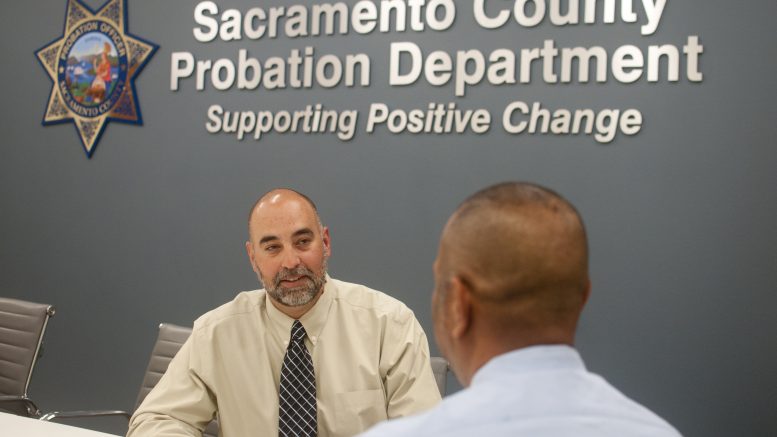Officer, social worker, positive influence. Probation officers do it all for their clients.
“Probation officers wear many hats, from the social work side, to the enforcement side and everything in between. Sometimes you have to go back and forth, just working with them to get them back on track. But we also have to keep public safety in mind too,” says Patrick Michael, supervising probation officer and field watch commander with Sacramento County Probation. “Probation holds clients accountable and helps ensure the safety of the public. Our probation officers are truly vested in seeing their clients succeed.”
That success comes with supporting the clients they supervise in many different ways as they reintegrate back into the community. Probation works to rehabilitate clients by linking them with:
- Job training and placement
- Drug and alcohol counseling
- Anger management
- Family counseling
- Housing referrals
- Educational and job training programs
- Health care and mental health care
- Connection to Medi-Cal, CalFresh, Social Security, veterans’ benefits, CalWORKS and more
Michael says the biggest hurdles most clients face is substance abuse and employment. Staying clean, finding and keeping a job can be hard with a criminal background, but it’s vital to getting turning their lives around.
“Their addiction obviously, it can control their life and has contributed to why they’re on probation. It’s a struggle that most of them have and have had to battle their whole life and will continue to have to battle. Trying to break that cycle, it takes a lot of support for that client,” he says. “We try to keep them busy with job training, education—if they don’t have a high school diploma, getting their GED and start there, or work on college or vocational training. Just trying to keep them busy and in a positive environment and keep them working toward something, a goal in mind for them.”
One of the ways probation is helping clients is by increasing the use of intermediate sanctions in lieu of incarceration for minor violations. Instead of issuing warrants and taking clients back into custody, officers can opt for one-on-one counseling, work project or flash incarcerations for fewer days. Officers can also help clear minor warrants and get their clients back on track with the courts’ calendar instead of jail.
“By avoiding taking them back into custody, that helps them maintain their employment, or their job training, or their education,” he says. “We’re highly trained and deal with the needs of individuals we supervise and genuinely care about seeing clients succeed.”


























